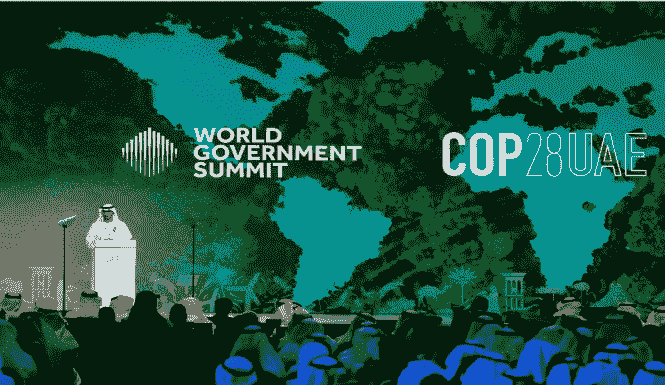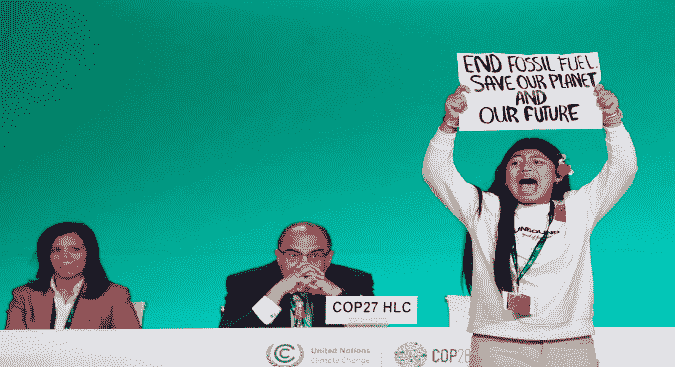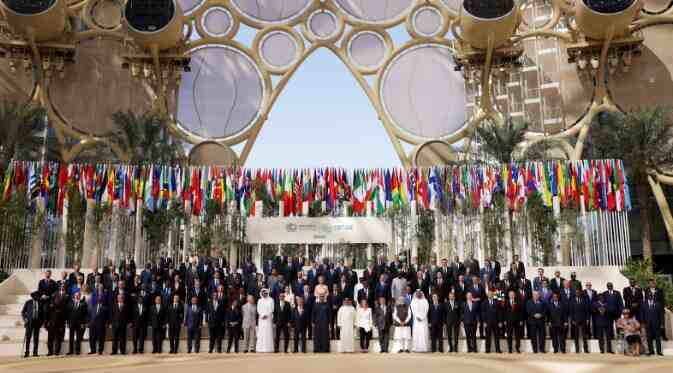The 28th session of the Conference of Parties (COP 28) was recently held in Abu Dhabi FROM 30 November TO 12 DECEMBER, 2023. COP is the decision-making body of the UNFCCC. The United Nations Framework Convention on Climate Change (UNFCCC) was signed in 1992 at the United Nations Conference on Environment and Development, which is also known as the Earth Summit or the Rio Summit. UNFCCC is the parent treaty of the 2015 Paris AGREEMENT and the 1997 KYOTO PROTOCOL.
Over the last few years, the important details of the Paris Climate Change Agreement have been discussed and decided upon. COP28 is concerned about implementing this agreement.
Around 200 governments were invited to the summit, along with Environmental charities, community groups, think tanks, businesses, and faith groups.
Why is The COP28 Summit Important?
This year’s summit is especially important since 2023 was a year of extreme climate events, in which many countries and people were affected. The UN’s Intergovernmental Panel on Climate Change has indicated that compared to the 2019 levels, greenhouse gas emissions need to be cut by 43% by 2030. For this it is important to limit temperature rise to 1.5 degrees Celsius by the end of this century to avoid the worst impacts of climate change, such as severe droughts, heatwaves, and excessive rainfall.
COP28 aimed at identifying global solutions for limiting global temperature rise to 1.5 degrees, accelerating green transition, and informing countries’ preparations for revised and more ambitious Nationally Determined Contributions (national climate plans) due by 2025.
Recent estimates have suggested that the world is currently on track for about 2.4C to 2.7C warming by 2100, although the exact numbers are uncertain. Thus, the window for keeping the 1.5C limit in reach is “rapidly narrowing”, the UN says.
Concerns related to the COP28 summit

Expectations from this summit had been initially low since it was felt that the oil-rich United Arab Emirates could deliver a deal that favoured the fossil fuel industry. The COP28 president Sultan al-Jaber is himself the CEO of Abu Dhabi oil giant Adnoc.
A letter by the Secretary General of the Oil Producing and Exporting, Haitham al-Ghais in which he urged OPEC members to scuttle any deal to curb fossil fuel use, was also leaked, reportedly creating tensions in the negotiating rooms. At least 80 countries have demanded a COP28 agreement that calls for an end to fossil fuels. Such a position would be unprecedented, considering three decades of UN climate summits that have never addressed the future of fossil fuel usage.
Milestones achieved at COP28
The summit began on a positive note where countries agreed to operationalise the Loss and Damage Fund. This fund would act as an insurance against damage caused by climate change. However, the money promised so far by developed nations is about $700 million. It is very small compared to what is needed every year. The nature of this fund is also uncertain and there are fears that a major chunk of the finances will come as loans.
Much of the focus at the summit was on ‘mitigation’, getting countries to commit to time-bound plans to reduce greenhouse gas emissions, the causal factors behind climate change, reflected in the emphasis on the Global Stocktake process.
The countries reached a 21-page long agreement, of which the clause in the 196 paragraphs “calls on Parties [to be] …Transitioning away from fossil fuels in energy systems, in a just, orderly and equitable manner, accelerating action in this critical decade, to achieve net zero by 2050 in keeping with the science.” However, the word “transitioning” has been diluted from the earlier drafts that had called for an actual “phase-out” of all fossil fuels.
The stronger language against fossil fuels received Pushback from oil-producing nations including Saudi Arabia, and Poorer nations that are reliant on fossil fuel exports, such as Iraq. The latter argued that it did not fairly reflect their limited role in causing climate change.
However, delegates from vulnerable nations such as Samoa and the Marshall Islands expressed their unhappiness over the agreement, which did not go far enough to end fossil fuels, risking their futures. Many developing countries raised concerns that other agreements at COP28 did not secure enough finance for them, to transition to greener energy or make up for the loss of income from selling fossil fuels.
Progress was also made on the new collective quantified goal (NCQG), whose $100BN goal, pledged by Developed nations has not been yet met, but this summit saw an agreement towards drafting a post-2025 finance target ahead of COP 29.
Countries also endorsed an agreement to restructure the global food system, though the agreement is non-binding. The report issued by The United Nations Food Agency laid out what it would take to align the global food system to limit average global temperature rise to manageable levels. $17 billion has been committed by The United States and the United Arab Emirates together toward agricultural innovations to address climate change. This year’s summit also attracted an array of food company executives.
COP28 and India
On the sidelines of the summit was launched GIRI, Global Infrastructure Risk Model and Resilience Index, to estimate risk and enhance countries’ ability to respond and recover from disasters. It was launched by the Coalition for Disaster Resilient Infrastructure, (CDRI) a Delhi-based global body of national governments and UN agencies.
It is the world’s first publicly available, probabilistic risk model concerning climatic hazards. It can measure risk in Various sectors- power, energy, water, telecommunication, health, education, oil and gas.
Another important development was the launch of the GRCA. The Global River Cities Alliance (GRCA) was launched by The National Mission for Clean Ganga (NMCG), which implements the government’s flagship Namami Gange program. Its members include 142 Indian River cities, the river cities of Den Haag, from the Netherlands, Adelaide from Australia, and Szolnok of Hungary.
Conclusion

While we cannot say that a decisive step has been taken towards the elimination of fossil fuel usage to tackle the challenge of climate change, the COP28 summit can be said to have witnessed a “beginning of the end” of the era of fossil fuel usage.
The first stocktake process that took place was the major highlight of the COP28 Summit, which assessed the global action on climate change to date. It called on the parties to take decisive steps towards emission reduction. Operationalisation of global Loss and Damage funds, and the boost to the Green Climate Fund were some of the important steps taken, that provide hope to the countries facing the worst impacts of climate change
– Malya Singh
Must Read: PSYCHOLOGY OF PROCRASTINATION AND SELF-DOUBT


